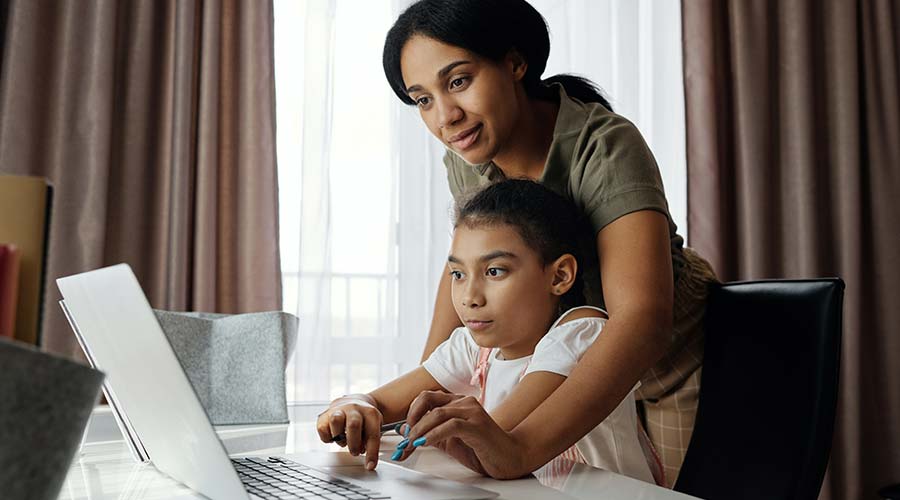In the U.S., internet access and readily available technology are often seen as a part of daily life, rather than a privilege. However, according to the United Nations’ International Telecommunication Union (ITU), 37% of the world’s population has never used the internet.
Bridging the global digital divide will take capital investment and innovative thinking by the globe’s leading countries, corporations, and individuals. As a key tenet of his philanthropy, Robert F. Smith believes that providing underserved populations with affordable and reliable internet access is a critical step in overcoming economic inequality.
In his efforts to close this gap, Smith works with multiple organizations including the EDISON Alliance, an initiative of the World Economic Forum.
The EDISON Alliance is committed to advancing digital inclusion across the globe, focusing specifically on the areas of healthcare, education, and financial inclusion. Through Smith’s position on the Alliance’s board, he’s working to contribute to achieve the Alliance’s ultimate goal of improving the lives of 1 billion people worldwide by 2025.
The 1 Billion Lives Challenge
Launched in 2021, the EDISON Alliance’s 1 Billion Lives Challenge is bringing together leading companies and governments from all over the world to conquer the digital divide. Those partners include:
- Southern Communities Initiative (a program led by Robert F. Smith)
- Kredivo
- Dell Technologies
- Hewlett Packard Enterprise
- Mastercard
- Verizon
Through its partnerships, the challenge is addressing a number of disparities through providing digital solutions, including the:
- 2 billion people worldwide without healthcare access
- 1.7 billion people without a bank account
- 265 million children without access to basic education
The work of Kredivo, in particular, has been highlighted by Yahoo Finance and demonstrates the power of partnership to reach people at scale. As the leading credit platform in Southeast Asia, the company oversees a region containing people that need help accessing banking solutions. Almost two-thirds of the population has insufficient banking access or none at all.
To aid this issue, Kredivo has committed to furthering digital financial access to 20 million people over the next five years. The focus will be on people in Indonesia, Vietnam, Thailand, and the Philippines.
“Financial services are crucial for laying the groundwork to a better and more productive life,” said Akshay Garg, Group CEO of FinAccel, Kredivo’s parent company to Yahoo Finance. “[Our] partnership with the EDISON Alliance puts us one step closer to providing access to financial services that impact and make the lives of tens of millions better.”
The Southern Communities Initiative (SCI) is working to impactfully address disparities throughout the United States. Launched in 2021 by Robert F. Smith, SCI builds off principals Smith outlined in The 2% Solution. SCI specifically focuses on African American communities in:
- Atlanta, Georgia
- Birmingham, Alabama
- Charlotte, North Carolina
- Houston, Texas
- Memphis, Tennessee
- Greater New Orleans, Louisiana
Those six cities contain more than half of the African American population in the U.S. Focusing on those cities allows for the SCI to concentrate its investment and track the progress and success of that capital. The money generated by SCI and its partners targets expanding entrepreneurship, modernizing local banking, opening doors to education, and increasing internet access, as over 36% of African American families do not have internet access at home.
“With digital technologies now at the center of almost every business interaction, lack of access to technology often means limited access to basic needs and services,” wrote Robert F. Smith in an op-ed for the World Economic Forum. “Black communities, in particular, already have fewer financial institutions, healthcare services and quality grocery stores in their neighborhoods. As these services and their supply chains move online, the fallout of digital exclusion creates an economic liability, and the socioeconomic issues increase in severity and complexity.”
To learn more about the digital divide and Smith’s thoughts on how to bridge the gap, subscribe to his YouTube channel.
